A Syrian refugee and Lebanese local created a thriving business
May 31, 2018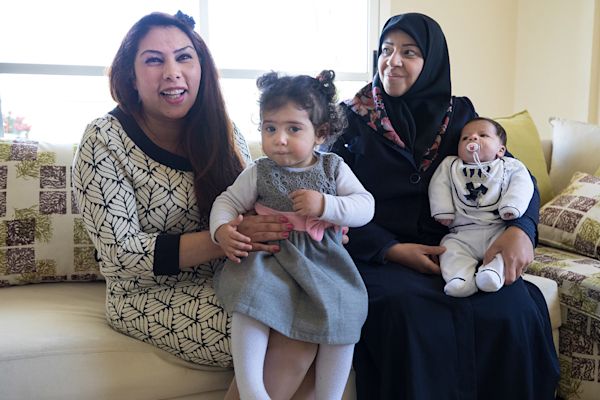
The Kiva community is rallying to raise $1 million in loans for refugees and internally displaced people by World Refugee Day, June 20.
Samah and Ahlam are the kind of friends that scoop up each other’s children and sooth them without batting an eye, as if they are their own.
Samah and Ahlam are also successful business partners who have more than tripled their monthly income since starting a clothes resale venture together and taking out a Kiva loan to build their inventory.
What makes their partnership unique is that Samah is a Syrian refugee living in Lebanon and Ahlam is a Lebanese citizen. Ahlam asked Samah to be her partner at a time when many Lebanese were cutting refugees off from job opportunities, preferring to only work with other Lebanese.
These tensions have grown as more than 1 million refugees fleeing the violence of the Syrian war have flooded over the border in the last 7 years. Lebanon now hosts the largest number of refugees per capita of any country.
The influx has strained Lebanon’s resources, creating competition for jobs and housing. Signs of this stress are all around: Syrian and Lebanese children attend school at different times of day, curfews have been put in place in some Syrian refugee communities and Lebanese openly complain about the spike in cost of living since the war began.
“It’s difficult to have communication between these groups of Syrian refugees and Lebanese because Lebanese people don’t like Syrians. They say the economy is bad because of them,” said Samah.
Despite these conditions, Samah has always felt comfortable with Ahlam and her mother-in-law Eftika. They opened their arms to her, even though she was a stranger when she arrived in 2013 after her family home in Syria was bombed.
The 3 of them took out a group loan together that was funded on Kiva, and Ahlam proposed Samah work with her in clothes resale, solidifying their commitment to each other and intertwining their success.
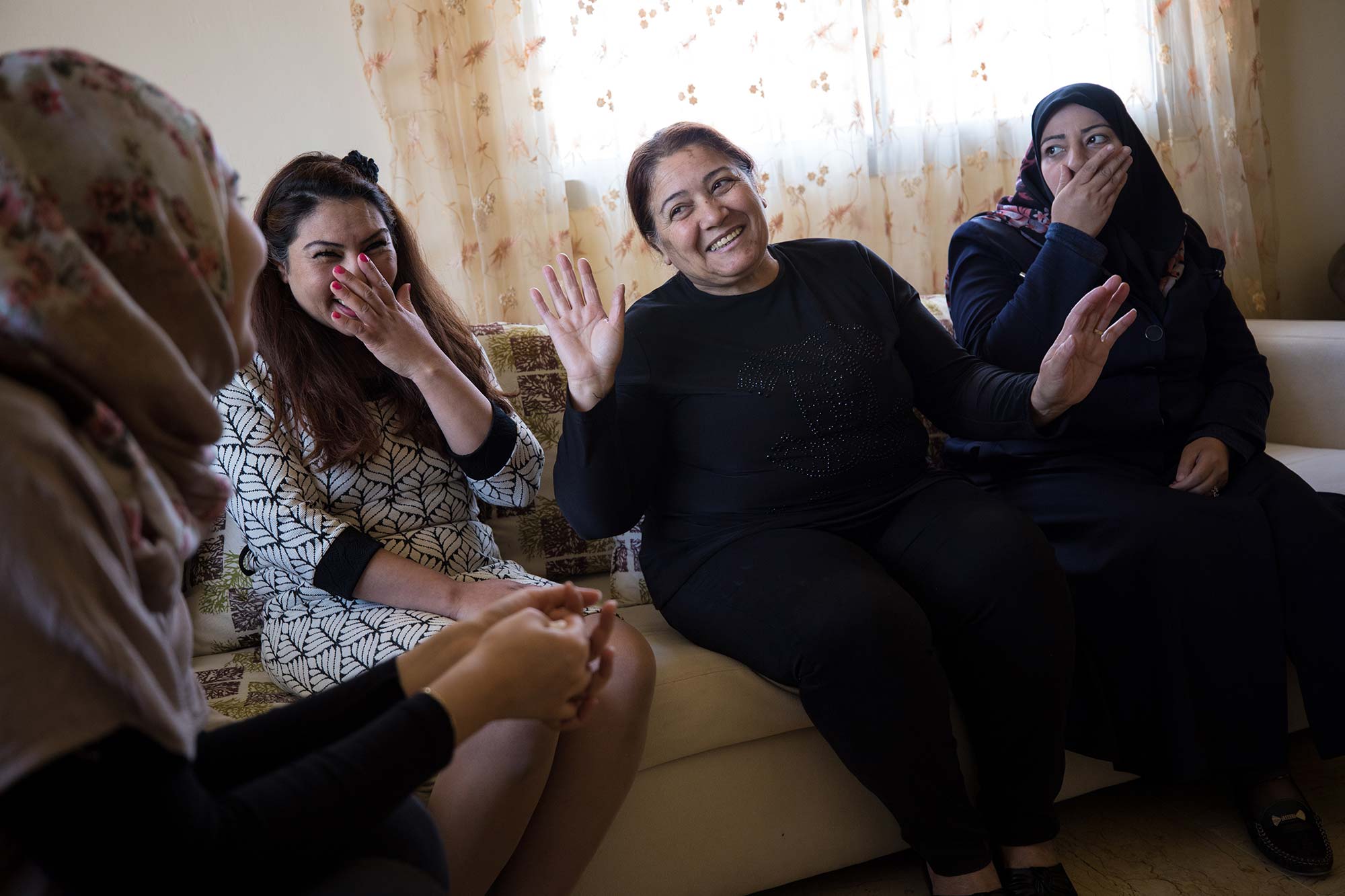
Ahlam and Eftikar are not concerned about what other Lebanese people might think about the business, or their loan with Samah.
“Samah is a good person and she has a white heart, so I like working with her,” said Ahlam.
Ahlam crosses into Syria to purchase clothes at cheaper prices, then she and Samah divide the clothing and sell to different communities. The loan gave them the capital they needed to purchase additional stock.
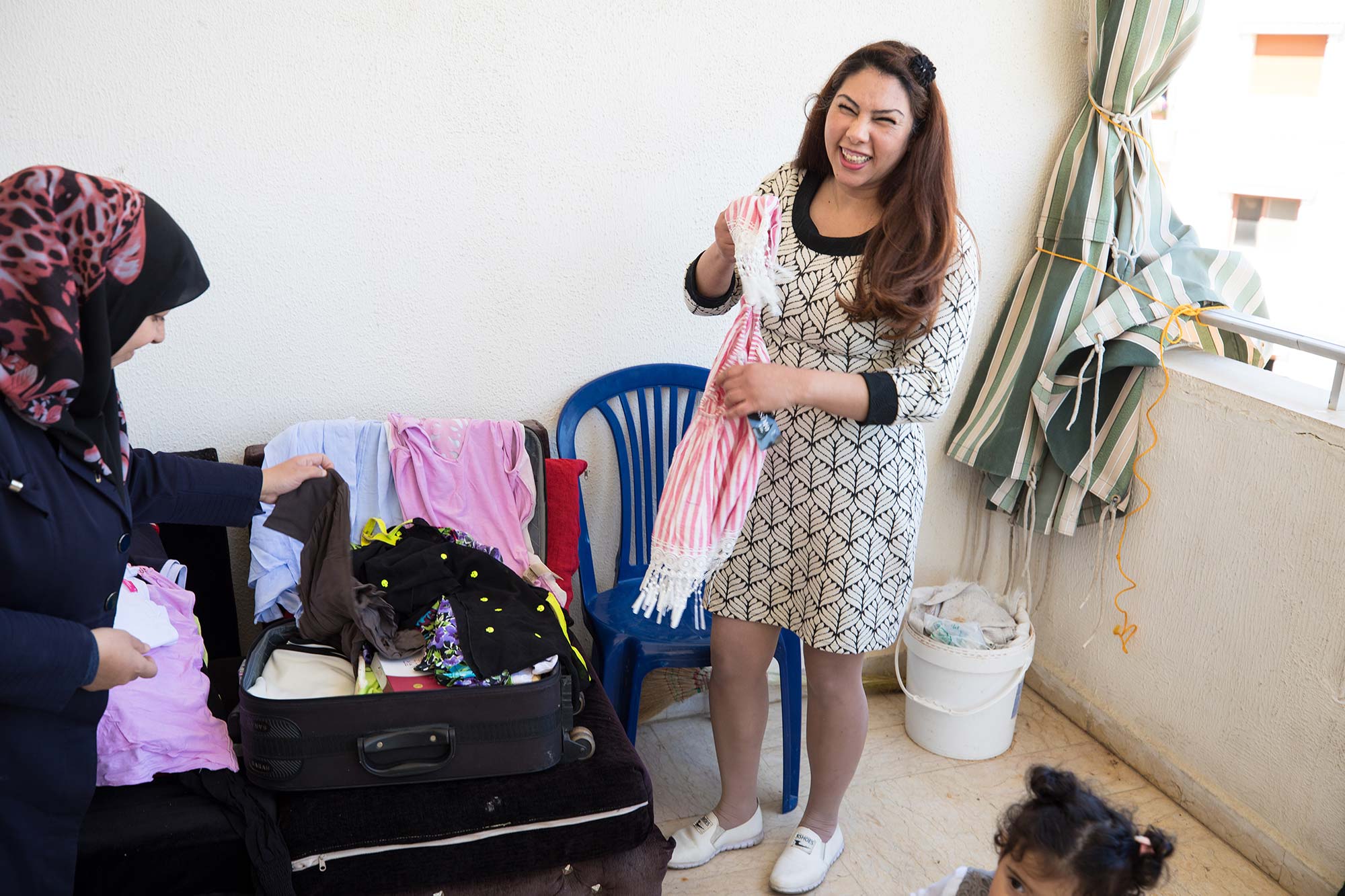
Samah would not be able to cross back and forth across the border freely since she is Syrian.
The business has grown from just a few clients and their income has increased. When they started 3 years ago, they were each making $200-$300 a month, now Samah makes close to $1,000 each month, Ahlam makes even more.
Samah recently gave birth to a son, her first child born in Lebanon. Her family’s biggest challenge now is the cost of living in Lebanon, as rent and food prices are high and continue to get higher with the country’s additional population.
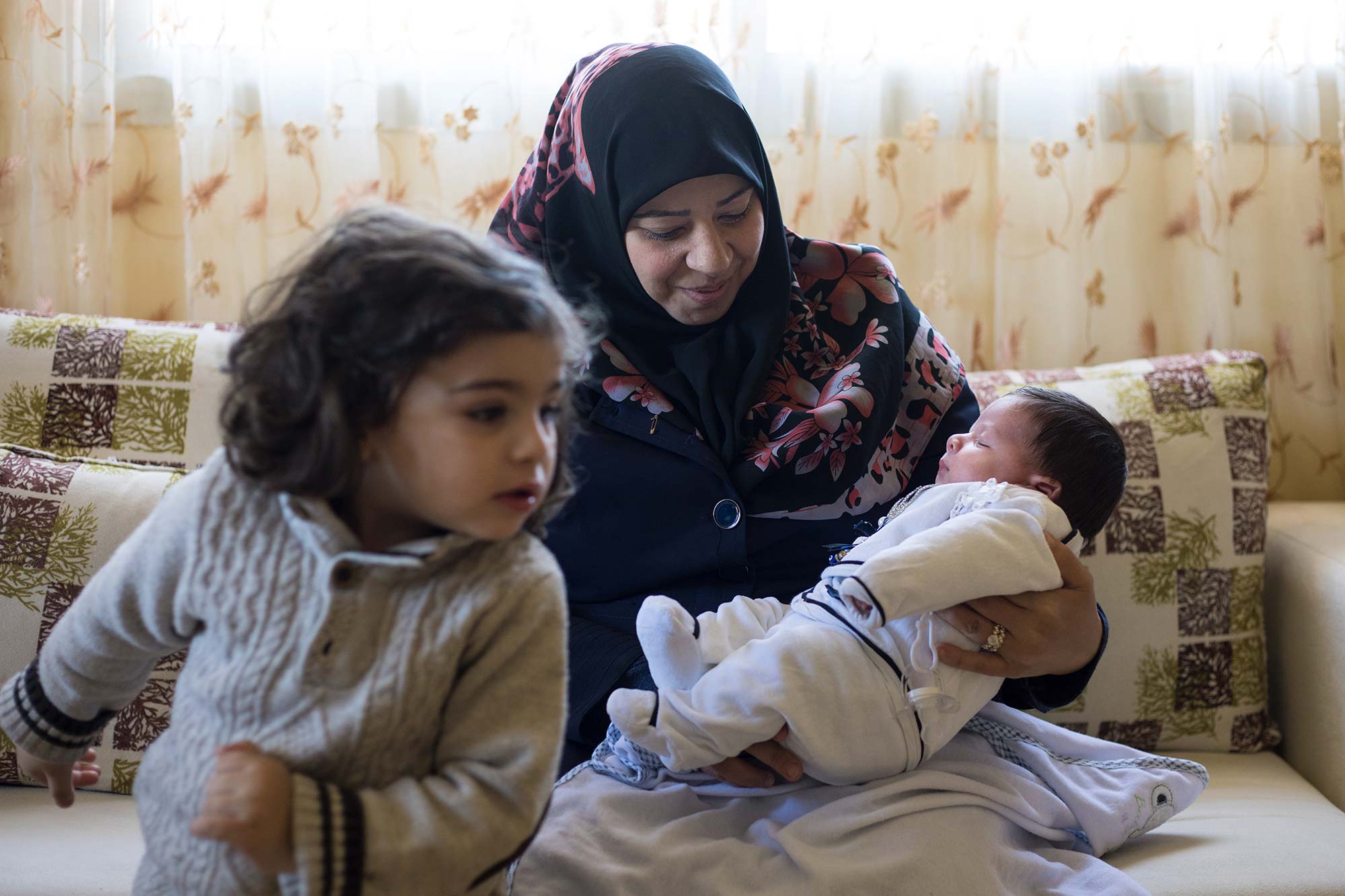
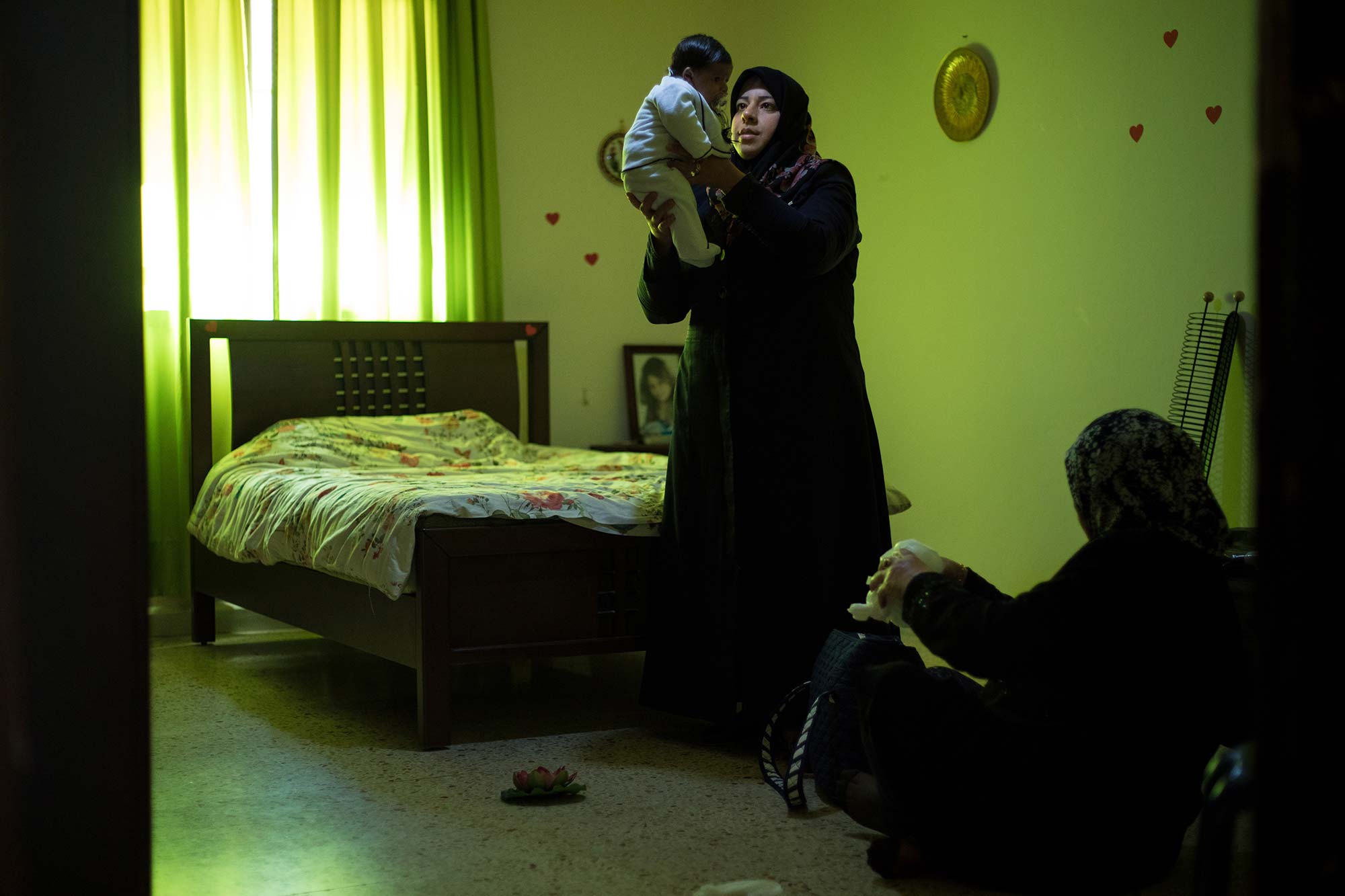
She has lost relatives to the war in Syria, but she is still hopeful she will see her remaining family back home someday.
“I miss my house and my family. I hope the war ends and I can go back to Syria,” Samah says.
Until then, she is grateful for her Lebanese friends, and they are grateful she and her family are safe in their shared community.

PREVIOUS ARTICLE
Links We Like: Breaking bread with a Kiva borrower →NEXT ARTICLE
In Rwanda, Congolese refugees rebuild →











